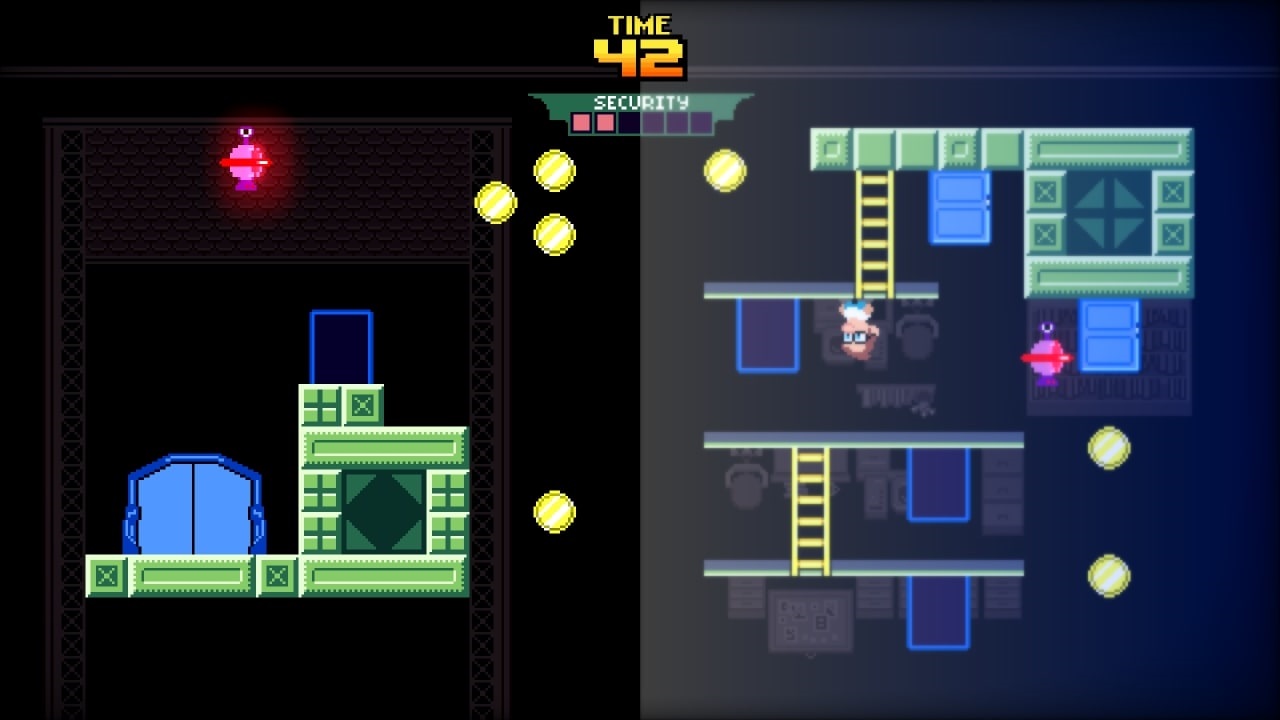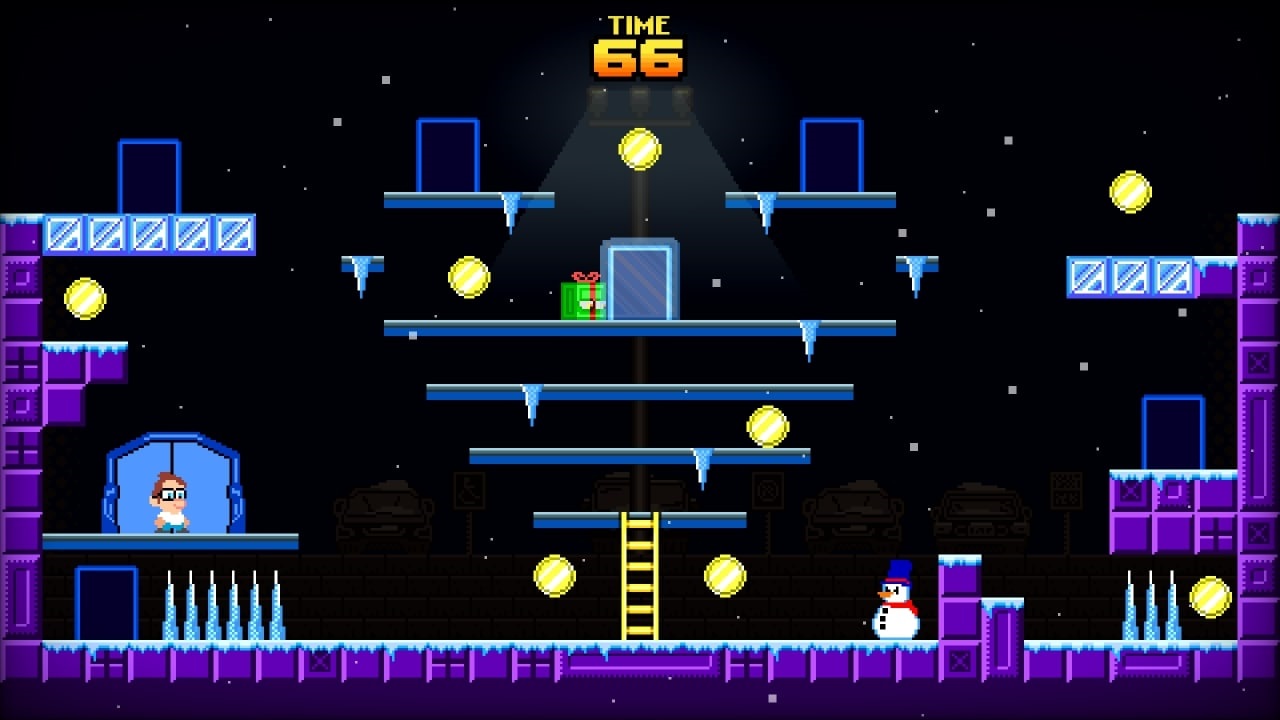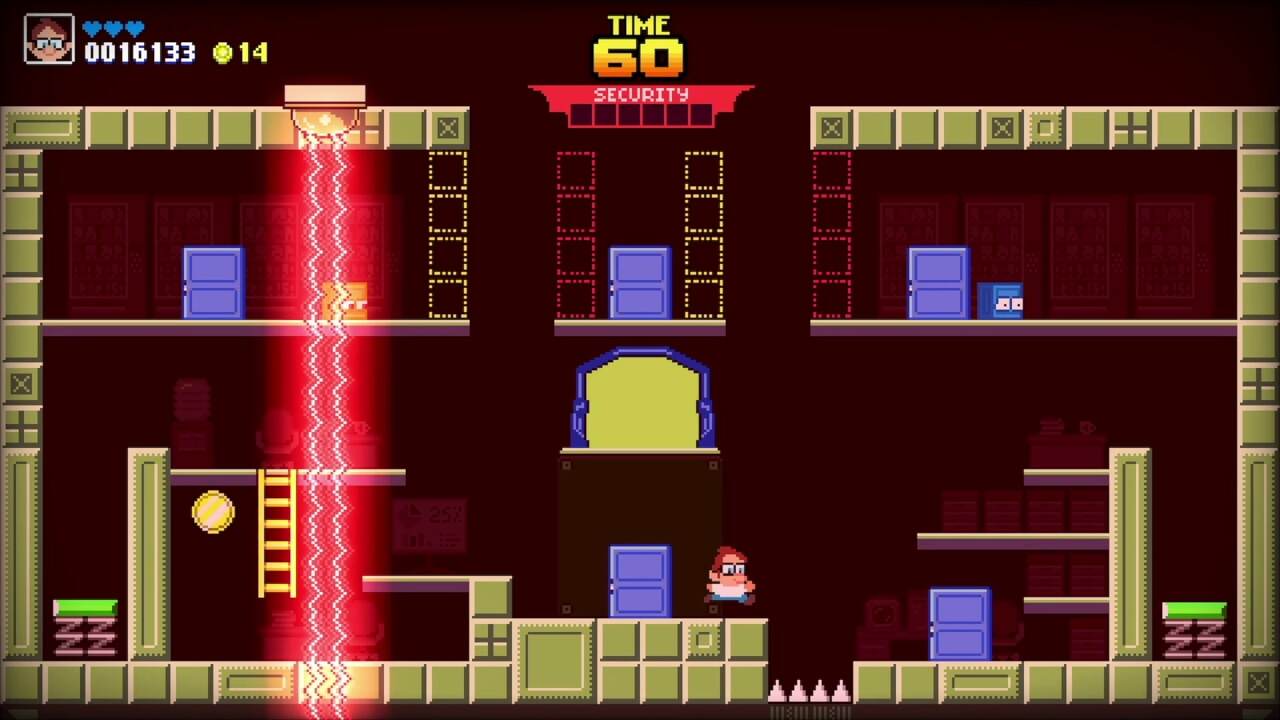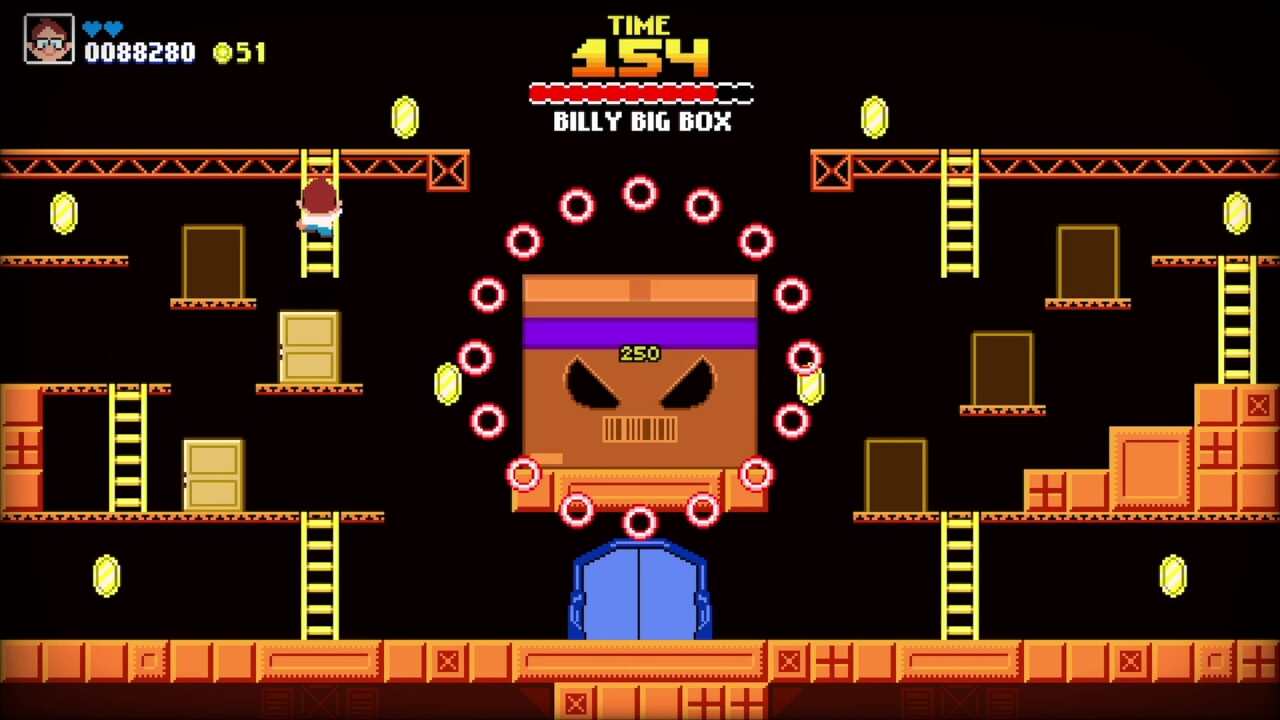Slam the front door. And all the others, too.
Back in late 2022, Flynn’s Arcade released a new old game called Donut Dodo. In my review, I praised it for being a great throwback to early ’80s arcade games without actually being an early ’80s arcade game. I found the idea of creating new games as if they were meant for the movie theaters and truckstops of that period quite appealing.
It’s taken a while, but we kind of have that retro feel again with Goliath Depot. I say “kind of” because, although Goliath Depot certainly has that retro arcade action, it comes with some modern features that wouldn’t have existed in 1982.
First, the gameplay. You start as a fellow or lady (your choice) expecting a normal day at the computer factory, until those computers start to run amok. How to save the day? Unplug them? No! You have to slam some doors, which is not only therapeutic, but productive in this case. The soundwaves of the slammed doors stun the computers, allowing you to kick them off the screen. Once all of the doors are shut, the level’s main doors will open, allowing you access to the next level.
That’s your entire premise, but that’s all video games needed back in the ’80s. The machines attracted you with bright colors, jangly sounds, and (if they were lucky) local DJ novelty songs. They hooked you by making you believe you were just one jump away from reaching the next level, and by making those levels visually and aurally captivating. Goliath Depot has certainly done that. You just need to look at the screen captures to know exactly how this game sounds and plays.
Regarding gameplay, the controls are simple enough to figure out, but the difficulty quickly ramps up as you progress; the doors become harder to access and the enemies more aggressive. With plenty of spiky floors, icy ledges, randomly placed lasers, and more, you just know this workplace does not enjoy the benefits of union membership.
You’ll need to start timing your door slams to make sure the enemies are in the right area first, but you can stand in the doorways without shutting them to remain safe until that moment presents itself. Like most great arcade games, you’ll start to work out patterns and strategies the more you play.
There are also bosses to face every 10 levels. This creates a nice break from the typical challenge, but also severs the cord that plugs the game into its ’80s arcade outlet. Donkey Kong, Popeye, and Burger Time had no boss battles, after all.
They also had no purchasable power-ups, which Goliath Depot does. The coins you collect throughout the game can be used not only to continue your progress once you’ve lost all your lives, but can also buy you new abilities with which to start the game. For example, you can buy the ability to jump down a level without having to rely on ladders or ledges. You won’t earn enough coins to rely on all these power-ups, but you’ll know a few runs in which will be the most helpful for your style of play. And, of course, certain power-ups will be more conducive against certain bosses.
Goliath Depot’s other modern features include in-game achievements and leaderboards, which I suppose replace the recording of your initials for the next players to see. It also comes with couch co-op, which is perfect for the game’s frantic pacing.
If you’re playing alone, you can take on a speedrun mode, accept the challenge at higher difficulty levels, or randomize the levels. In other words, Goliath Depot is able to keep you engaged even after you’ve completed its initial 40-level run, which you should be able to do within a couple of hours. If that seems short, consider its $7.00 price tag, which is more than fair.
So, it’s easy to recommend Goliath Depot to fans of classic arcade games. Its modern additions and replay incentives break its ties to the games that inspired it, but will surely keep today’s gamers engaged for a longer period. Our hero/heroine may not be as memorable as Mario, but slamming doors and kicking computers at the workplace is something I believe we all can identify with.
Review: Goliath Depot (Nintendo Switch)
Good
Goliath Depot effectively pays tribute to early ’80s arcade gameplay, and would’ve fit right in next to the machines that inspired it. Although aimed at classic gamers, modern features such as leaderboards, level randomizers, and a speedrun mode should help it appeal to a wider audience.






